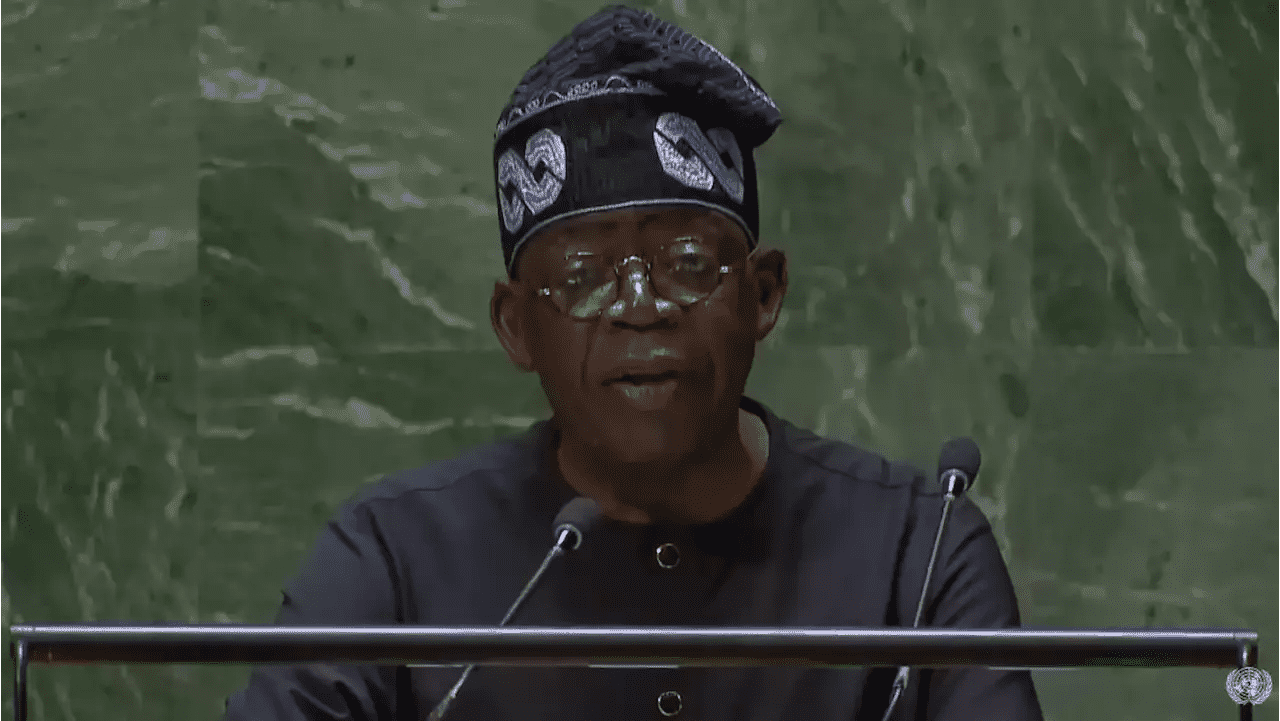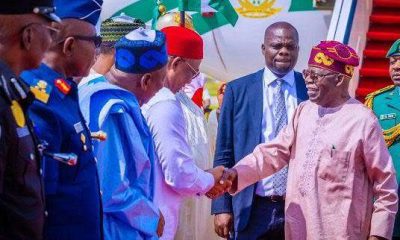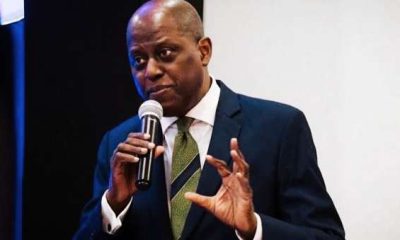Headlines
Odu’a Republic of Nigeria: Disquiet over Tinubu’s ‘lopsided’ appointments

By OBINNA EZUGWU
Recent appointments made by President Bola Tinubu, which are not only heavily tilted towards his native Southwest, but affected the most “juicy” positions, have jolted the polity, with even some of his supporters in the region expressing discomfort in informal interactions. Tinubu seems to follow a precedent set by his predecessor, Gen. Muhammadu Buhari, who, many say, took nepotism to a whole new level.
A country of multiple ethnic groups, three of which are prominent, framers of Nigeria’s constitution in recognizing the need to ensure that there’s no predominance of one group, accommodated the principle of Federal Character. The idea being that the composition of government and institutions of government should reflect the country’s diversity in order to ensure stability.
Specifically, the principle of Federal Character as enshrined in Section 14 (3) of the 1999 constitution provides that, “The composition of the government of the federation or any of its agencies, and the conduct of its affairs shall be in such a manner as to reflect the federal character of Nigeria and to command national loyalty by ensuring that there is no predominance of persons from one sectional group.”
Successive administrations over the years have tried to observe this principle, but the government of Buhari, the immediate past president, in the opinion of many, grossly violated same by strategically ensuring that his Muslim north dominated key structures of his government to the detriment of the south, particularly the Southeast and to lesser degree, the South South.
For instance, previous analysis by Business Hallmark had shown that of the top 50 strategic appointments made by the Buhari administration, 30 went to his native Northwest, 11 to the Northeast, three to the North Central, four to the Southwest, two to the South South and none to the Southeast.
Buhari’s northernisation policy, while it may have empowered a few northerners, created massive discontent in the polity. And a little more than 100 days into office, his successor, Tinubu appears to have taken a page out Buhari’s work-book of nepotism, much to the chagrin of many.
“Under Buhari, what we saw was Fulanization, or more broadly speaking, northernization of Nigeria,” said Nnaji Nnamdi Kenneth, a public affairs commentator in Enugu. “What we are now seeing under Tinubu is Yorubanisation of Nigeria, or an attempt to turn Nigeria into an Oduduwa Republic. We now have a situation, where the country’s economic and security structures are firmly in Yoruba hands. It’s not healthy.”
Indeed, while the new president has yet to fill a good number of government agencies and parastatals, the early appointments appear to have shown a pattern. Today, the southwest controls the army, the police and other security agencies, with the chief of army staff, who is the head of the military, coming from the region, same as the Inspector General of Police, the Attorney General, controllers of immigration and customs, among others.
With the appointment of Yemi Cardoso as governor of the Central Bank of Nigeria few days ago, the president has also ensured that the entire economic structure of the country is firmly in the hands of his native southwest, with the region already in charge of finance ministry, Federal Inland Revenue Service (FIRS), petroleum ministry, among others.
“From all indications, most, if not all sensitive or ‘lucrative’ assignments are being given to persons of Southwest extraction, noted Professor Tukur Muhammad-Baba, spokesperson for the northern sociopolitical group, Arewa Consultative Forum (ACF).
“It’s not ideal in a deeply fractious federation like ours. But the Constitution gives absolute power to the President to make such appointments. A part of the Constitution directs that such appointments must reflect the social diversity of the country in terms of “balancing” of place of origin, indigeneship, ethnicity, religion, etc,” Muhammad-Baba told The New Telegraph.
Tinubu had achieved power on the plank of a controversial Muslim-Muslim ticket in a diverse polity, in an attempt to appeal to the northern Muslim voting bloc. He succeeded in winning the plurality of the votes in the region, but while voices, such as the Muslim Rights Concern (MURIC), an Islamic rights advocacy group, had strongly backed the ticket, perhaps hoping to see the cementing of Islamic dominance in the country started by Buhari, the president has, it would seem, opted for ethnicity over religion, much to the disappointment of MURIC.
“We are shocked to our marrows that President Bola Ahmed Tinubu has been appointing Christians and Yorubas mainly to key positions since the inception of this administration at the expense of Muslims,” Prof. Ishaq Akintola, director of MURIC lamented in a statement last week.
“All five key appointments made by President Tinubu to revive the economy were given to Christians and Yorubas mainly. These new appointees include the Minister of Finance, Wale Edun, the newly nominated CBN Governor, Dr. Michael Cardoso, Hon. Zacch Adedeji, Acting Chairman, FIRS, the Chairman, Tax Reforms Committee, Mr. Taiwo Oyedele and Mr. Tope Fasua, Special Adviser on Economic Affairs.
“Many competent Muslims, who campaigned and voted for Muslim-Muslim ticket during the presidential election, were ignored. It is interesting to note that some of those Muslims are eminently qualified to hold key political offices since there are professors, engineers, medical doctors and holders of doctorate degrees among them.
“To add salt to injury, one of the best Muslim ministerial nominees, the man, who championed the Muslim-Muslim ticket and mobilised the whole North behind Asiwaju has been jettisoned. Also, Professor Ali Isa Pantami, who took the communication and digital economy to enviable heights during the last administration was ignored. Where, then, is our Muslim president, taking Nigerian Muslims?
“Our message to President Tinubu is this (and we want the president’s handlers to take this to him) the cacophony of voices of dissatisfied Muslims has reached an unbearable crescendo, such that MURIC is now constrained to speak up. People are complaining, particularly Muslims from the North and South West and they can only be ignored at the risk of foregoing 2027,” the statement added.
Tinubu is a largely unpopular president, whose policies have so worsened the country’s economic outcomes. MURIC warned that if Muslims are denied important political posts coupled with the current economic hardship in the country, some regions may want to demand a pound of flesh in 2027.
“We remind President Bola Ahmed Tinubu that all regions, faiths and sections deserve political appointments. The Tinubu administration must not be the exclusive preserve of the Yorubas at the expense of other tribes, nor the monopoly of Rome at the expense of Madinah. No region must be sentenced to hunger, starvation and political isolation,” it said.
“Tinubu’s next appointments must see a shift in body language. All regions, faiths and sections must benefit from political appointments made by this government while no ethnic group or faith is seen to be favoured above others.
“Meanwhile, we in MURIC accept full responsibility for the dilemma facing Nigerian Muslims as their Muslim-Muslim ticket has turned into a ‘Christian majority government’. We admit being in the forefront of the campaign for a Yoruba Muslim presidency, which has become a bone in the throat of Yoruba Muslims, in particular, and Nigerian Muslims, in general.
“With heavy hearts, we tender unreserved apology, first, to the former governor of Kaduna State, Mallam Nasir El-Rufai for what we led him into, even though he showed no interest at the beginning, and to other Nigerian Muslims, particularly, those, who have been accusing us of misleading them.”
Listing the appointments made by the president thus far, the Human Rights Writers Association of Nigeria (HURIWA), a civil society group, also last week, accused Tinubu of nepotism, alleging that most of the key appointments in his government were allotted to Nigerians from his ethnic group.
HURIWA in a statement issued by its coordinator, Emmanuel Onwubiko, stressed that the recent appointments of the CBN governor and chairman of the Federal Inland Revenue Service given to Yoruba people are an attestation.
“With President Bola Ahmed Tinubu’s recent approval of the nomination of Olayemi Cardoso to serve as the substantive new Governor of the Central Bank of Nigeria (CBN), some 48 hours after appointing Zachaeus Adedeji as the acting chairman of the Federal Inland Revenue Service, FIRS, the strong perception that the President is pushing an unseemly pro-ethnic agenda became worryingly stronger,” the group said.
“Adedeji is to “serve in an acting capacity for 90 days before his subsequent confirmation as the substantive chairman of FIRS for a term of four years in the first instance.
”With a little over 100 days on the saddle, the President’s appointments have shown he appears to have special consideration for people from his South-West region, especially those with links to Lagos State.”
The group cautioned Tinubu, who it accused of assembling his Yoruba and Lagos connections into his government, not to follow the path of his predecessor, former President Muhamamdu Buhari, who reportedly did the same during his eight years in power, stressing that the
“If President Tinubu’s appointment of new service (chiefs) sparked new hope and drew deserved plaudits in that it recognised the nation’s diversity, his subsequent appointments curiously depart from that template,” it said.
“That the disastrous, previous administration of General Muhammadu Buhari (rtd) toed a visionless, divisive path, in the overwhelming tribalistic appointments it made, should never excuse this course that fundamentally degrades the legitimate dream of a new, progressive, inclusive Nigerian state.
“Today, the stakes are extremely high and Nigerians are mindful that a failure to achieve democratic stability, through a meritorious, transparent, inclusive governance process may imperil the country’s future as a coherent state. Mere political rewards and seeming ethnic nationalism should not drive the national journey. It is a perilous, avoidable option.
“The Human Rights Writers’ Association of Nigeria (HURIWA), strongly believes that this is the wrong path to thread, especially against the background of deep mistrust, misery, political and economic dislocations brazenly birthed by the predecessor administration. We believe that like Caesar’s Wife, the Tinubu administration ought to be above suspicion.
“We recall here that the central driving mantra and foundational philosophy on which the ruling All Progressives Congress sold its presidential candidate Asiwaju Bola Ahmed Tinubu, now President, to Nigerians, was “Renewed Hope.” Nigerians bought into it and voted the Asiwaju and APC to power because it deeply resonated with the populace. But what is the reality?
“Key appointments traversing the nation’s crucial security, judicial and economic sectors are now unabashedly cornered by the South-West region. A quick, non-exhaustive check-list would include: Petroleum Minister: Bola Tinubu; Chief of Staff: Femi Gbajabiamila; Minister of Justice: Lateef Fagbemi; Minister of Finance and the Coordinating Minister of the Economy, Mr. Wale Edun; Acting Governor of the Central Bank of Nigeria (CBN), Mr. Folashodun Shonubi who now gives way to a substantive CBN boss Olayemi Cardoso.
“Others include: Minister of Marine & Blue Economy, Bunmi Tunji-Ojo; Minister of Communication, Innovation & Digital Economy, Bosun Tijan; simultaneously, the Chairman of Senate Committee on ICT, Afolabi Salisu, and that of House of Representatives, Adedeji Olajide Odidiomo are both from the South-West; Minister of Power: Adebayo Adelabu; Minister of Transport: Adegboyega Oyetola; Minister of Solid Minerals, Dele Alake; Chief of Army Staff, General Taoreed Lagbaja; Police IG, Kayode Egbetokun; Comptroller-General Customs:l, Adewale Adeniyi; Comptroller-General Immigration, Adepoju Carol Wura-Ola; FIRS Chairman: Zacchaeus. Adedeji, et cetera.”













